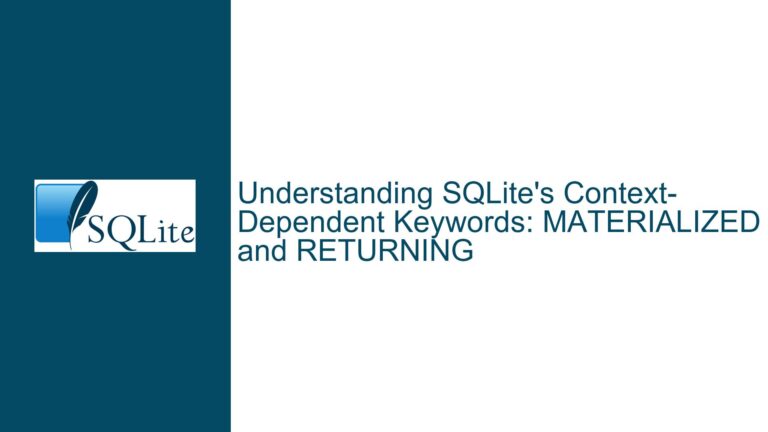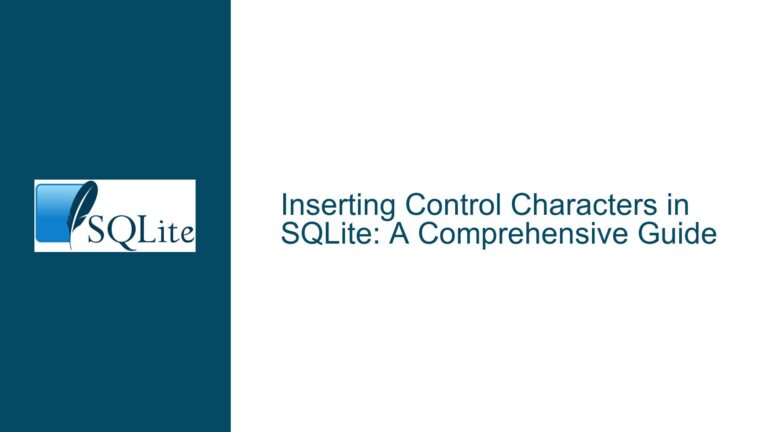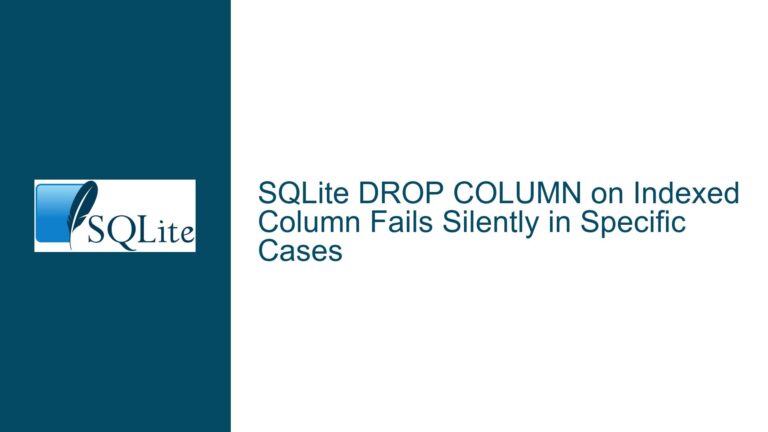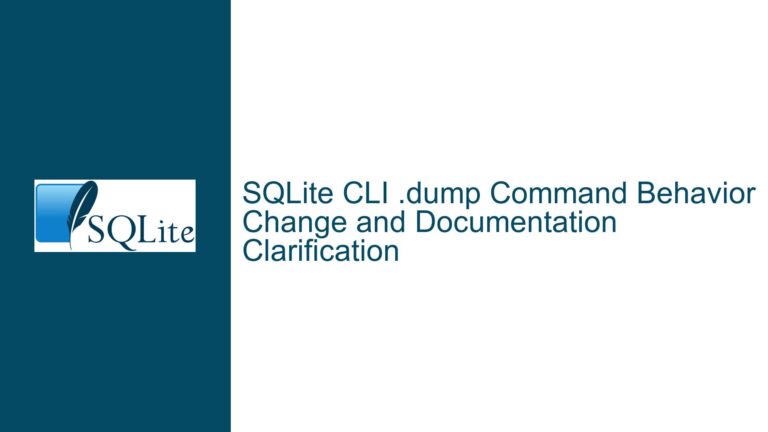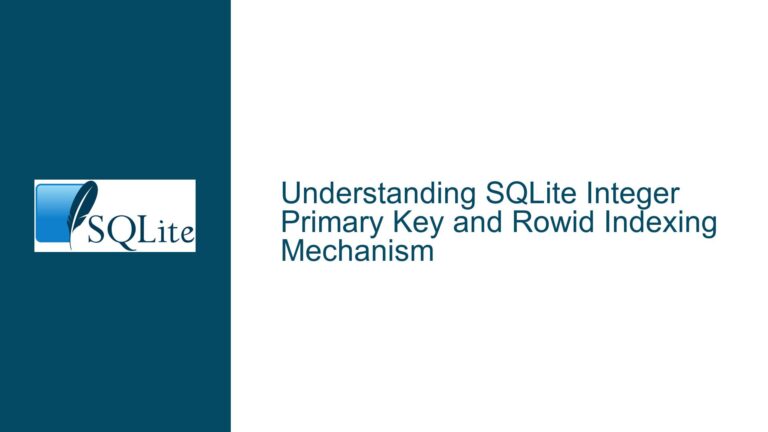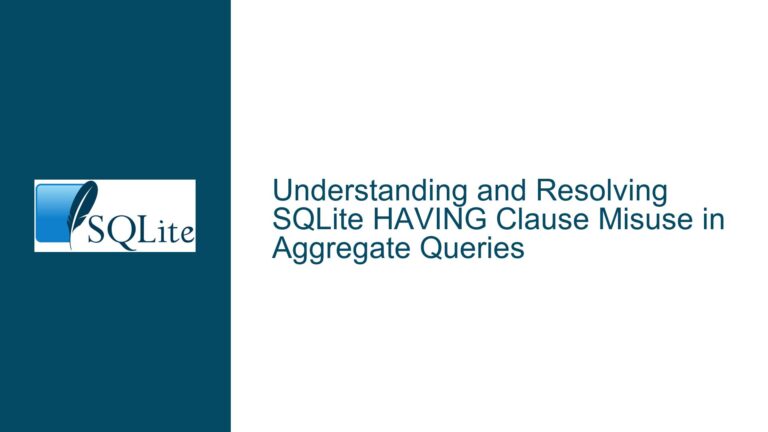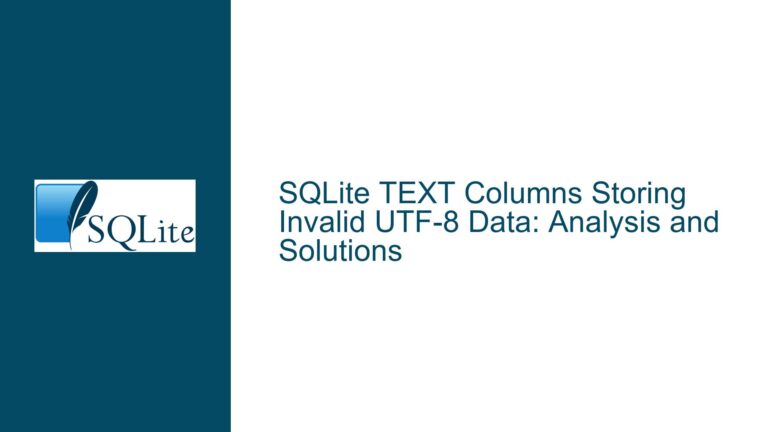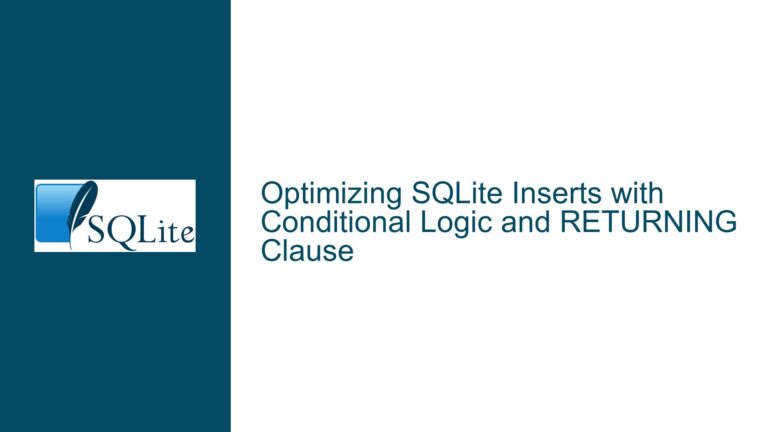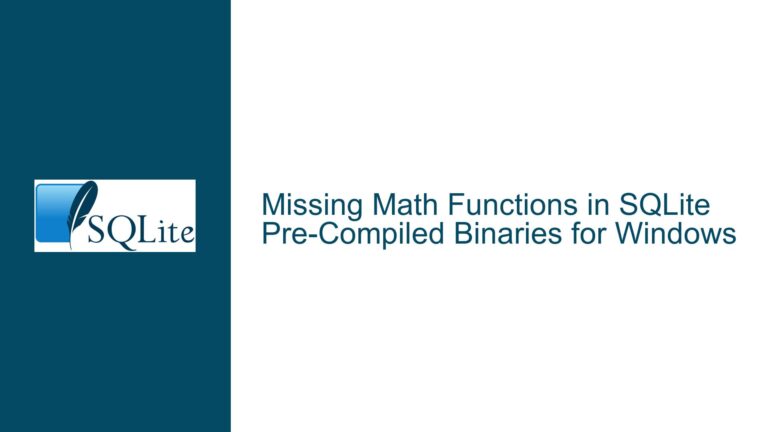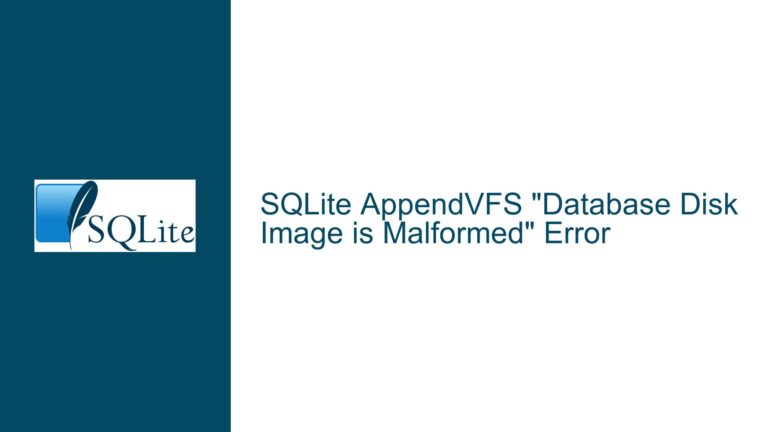SQLite’s Context-Dependent Keywords: MATERIALIZED and RETURNING
SQLite’s Context-Dependent Keyword Handling for MATERIALIZED and RETURNING SQLite, known for its lightweight and efficient database management, employs a unique approach to handling certain keywords that are not part of its standard keyword list. Keywords like MATERIALIZED and RETURNING are treated as context-dependent, meaning they are recognized as keywords only in specific syntactic positions within…
